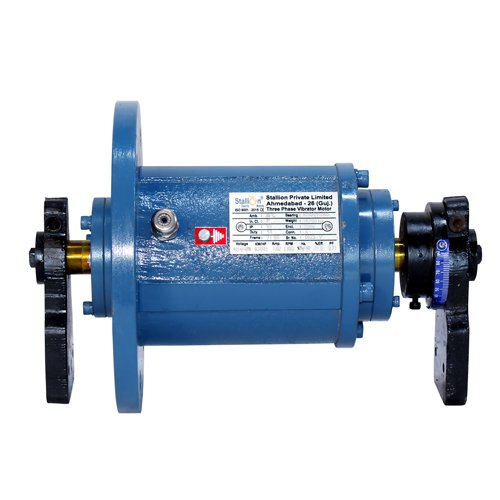Gyro Screen Motor
Gyro Screen Motor
Get a Quote For Gyro Screen Motor
Gyro Screen Motor Details :
A gyro screen motor, also known as a gyratory motor or vibratory motor, is an electric motor specifically designed for driving gyro screens or gyratory screens. A gyro screen is a type of vibratory screening machine used to separate materials based on their size and shape. It employs a unique gyratory motion to achieve efficient and effective screening.
Here are some key points about gyro screen motors :
- Gyratory Motion : A gyro screen motor generates a gyratory motion, which is a combination of circular and horizontal motion. This motion is distinct from the linear motion generated by traditional vibrating screens.
- Vibration Generation : The gyratory motion is created by the motor's design, often involving eccentric weights or unbalanced shafts. This motion causes the material on the screen to move in a circular or elliptical pattern, promoting efficient separation.
- Screening Mechanism : Gyro screens typically have multiple screens or decks with varying mesh sizes. The gyratory motion ensures that the material is in constant motion on the screens, allowing for effective separation and classification.
- Vibration Characteristics : The frequency and amplitude of the gyratory motion can be adjusted to optimize the screening process for different materials and particle sizes.
- Power and Capacity : The motor's power rating depends on the size of the gyro screen and the material being screened. Larger screens or heavier materials may require more powerful motors.
- Durability and Construction : Gyro screen motors need to be built to withstand continuous gyratory motion and potential exposure to the screened material. They should be designed to resist wear and tear.
- Enclosure and Protection : Depending on the operating environment, the motor might require protective enclosures to prevent the ingress of dust, moisture, and other contaminants.
- Energy Efficiency : Opting for an energy-efficient motor can help reduce operational costs over time.
- Control and Regulation : Depending on the application, the ability to control the motor's speed and gyratory motion intensity can be important. Some motors come with built-in controls, while others require external control systems.
- Maintenance : Selecting a motor that is easy to maintain and service can contribute to the long-term reliability of the gyro screen system.
- Noise Level : Noise generated by the motor's gyratory motion should be considered, especially in noise-sensitive environments.
When integrating a gyro screen motor, it's crucial to follow the manufacturer's recommendations for installation, maintenance, and safety. Collaborating with professionals experienced in equipment selection and mechanical engineering can help ensure that the motor and the overall gyro screen system operate efficiently and safely.

